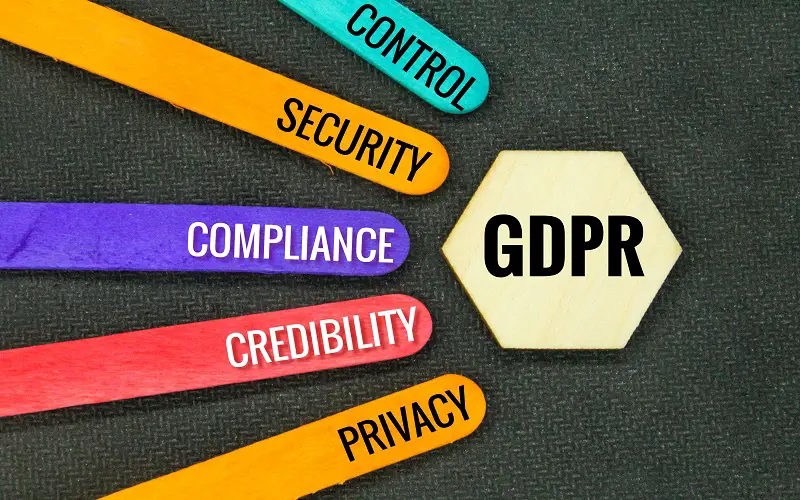In 2018, the European Union implemented the General Data Protection Regulation (GDPR) to protect the personal data of its citizens.
This regulation has far-reaching implications for businesses worldwide that process the personal data of EU residents.
In this beginner’s guide to GDPR compliance, we’ll explore GDPR, who it applies to, and the steps businesses can take to ensure compliance.
What Is GDPR?
GDPR is the EU’s General Data Protection Regulation. It’s an update to current EU data protection laws that aim to strengthen privacy rights and transparency for all European citizens.
The GDPR is a regulation that applies to all European Union (EU) organizations. It sets out clear rules about the legality, how companies can collect and use personal data, and what information they must provide about their policies on how this data will be handled.
The GDPR also introduces new requirements for companies who want to process personal data in the EU.
Who Does GDPR Apply To?
All businesses that handle the personal data of EU residents are subject to GDPR. This covers companies of all types and sizes, ranging from small start-ups to enormous conglomerates.
It also applies to companies with headquarters outside the EU that handle personal data belonging to EU residents. Any firm that gathers or uses personal data must follow GDPR.
Steps to GDPR Compliance
The GDPR will be a heavy burden if you’re a small business. But it doesn’t have to be–you can still operate with compliance in mind. Here are some steps you can take to get started:
Recognizing the Regulation
Understanding the GDPR is the first step toward compliance. It entails reading the regulation’s content and comprehending its requirements.
GDPR requires organizations to acquire individuals’ consent before collecting their data, provide them access to that data, and remove such data at their request.
Doing a Data Audit
Doing a data audit is the next step after understanding GDPR. It entails identifying every piece of personal information that your company gathers, uses, and maintains.
Also, you should specify the reason each data category was collected and the legal justification for processing it. You can use this to assess whether your methods for collecting and processing data comply with GDPR.
Establish a Data Protection Officer Position
You may need to employ a data protection officer if your firm handles a lot of personal data (DPO).
The DPO will be in charge of making sure that your company complies with GDPR and handling any emerging data protection issues.
Implement Appropriate Security Measures
Organizations must comply with GDPR and place the necessary security measures to safeguard personal data.
Access controls, personal data encryption, and regular security audits are all part of this. You should also have a plan for responding to a security breach.
Train Your Staff
Any employee who handles personal data is required to complete GDPR compliance training.
It includes instructions on security precautions, data protection principles, and breach response protocols.
Update Your Privacy Policy
To comply with GDPR standards, your organization’s privacy policy must be amended.
Your policy must describe how you gather, use, and store personal data in simple, straightforward terms.
What Is the Importance of GDPR Compliance?
Personal Data Protection: The GDPR was created to safeguard the personal information of EU people. The GDPR’s compliance helps to ensure that personal data is processed in a way that respects each person’s right to privacy. This supports keeping stakeholders’ and customers’ faith in your company.
Avoiding Penalties: Violations of the GDPR may incur hefty fines. The highest of €10 million or 2% of global yearly turnover may be imposed as a penalty for noncompliance. These penalties may significantly impact the financial health of your company.
Securing Reputation: Your organization’s reputation can be harmed by a data breach or by not complying with GDPR. It may result in poor press coverage, declining sales, and harm to your brand. The faith of your stakeholders and customers can be preserved by adhering to GDPR.
Competitive Advantage: Adhering to GDPR requirements can help your business stand out. It demonstrates that your company respects people’s right to privacy and takes data protection seriously. Customers who value data privacy and security may be drawn to this.
Global Consequences: GDPR has effects outside of the EU. Regardless of where the organization is headquartered, it applies to all organizations that handle the personal data of EU persons. Your firm can traverse the complicated web of international data protection laws and regulations with the help of GDPR compliance.
Final Thoughts
GDPR compliance is essential for any organization that processes the personal data of EU citizens. Failure to comply with GDPR can result in significant fines and reputational damage.
By following the steps outlined in this beginner’s guide, you can ensure that your organization complies with GDPR and protects your customers’ personal data.




